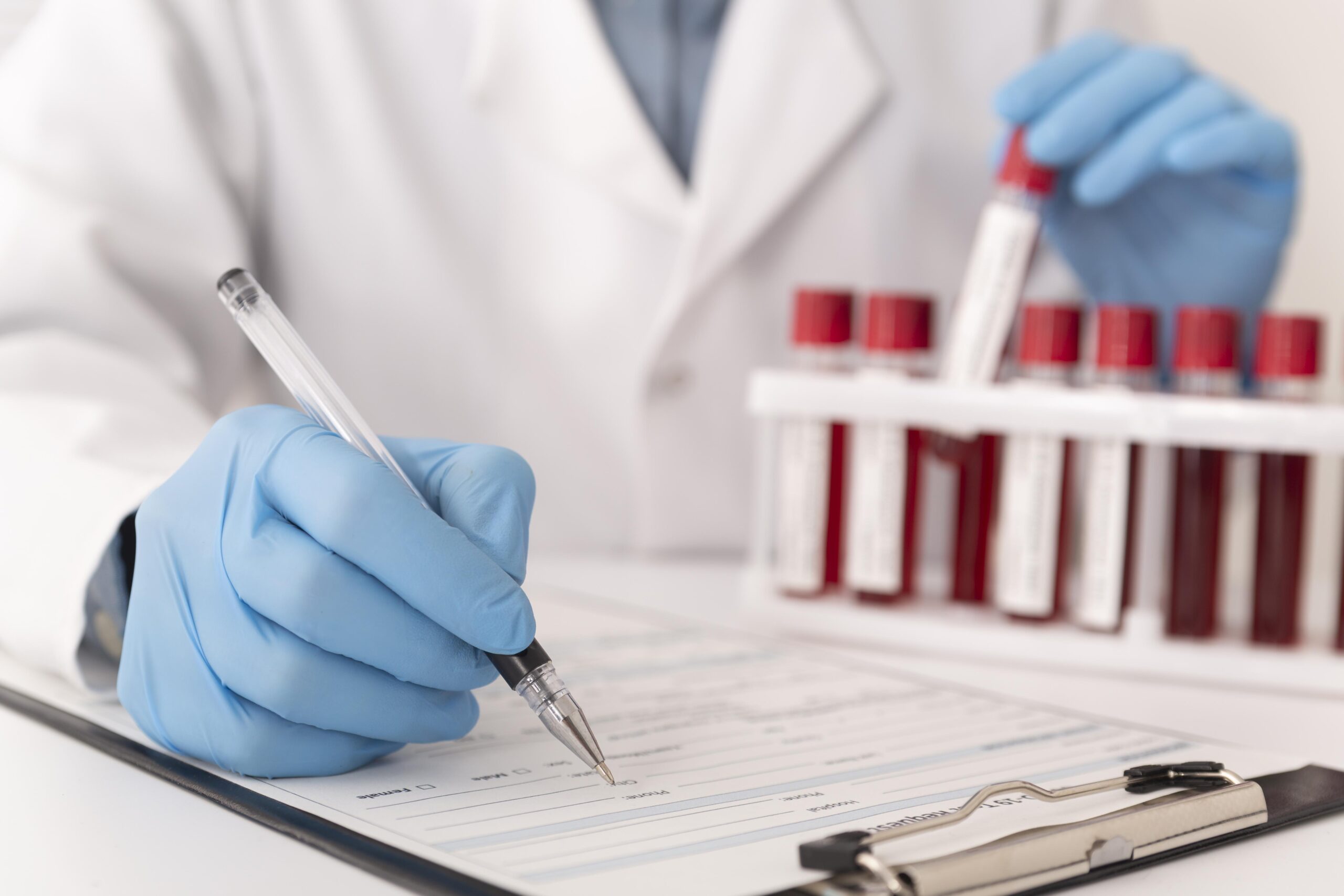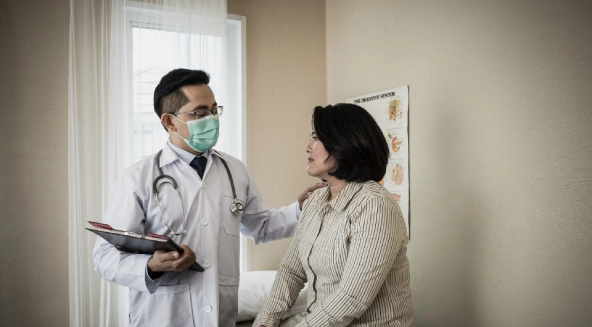What Is a Physical Check Up? Tests, Timeline, and What to Expect
A physical examination (also called a general health check up or annual physical check up) is a comprehensive visit to assess your overall health and prevent problems before they start. Expect a medical history review, vitals (blood pressure, heart rate, BMI), a head-to-toe examination, and age-appropriate screening tests. Many conditions high blood pressure, diabetes, high cholesterol have no symptoms early on; a routine check up or yearly check up helps detect risks early and keeps you on track with preventive care.
Typical tests at a physical check up:
- Blood work: lipid panel (cholesterol), fasting glucose or A1c, complete blood count, kidney and liver function
- Urinalysis when indicated
- Thyroid check up as needed
- ECG for selected patients (based on symptoms or risk)
Frequency: Most healthy adults benefit from annual medical exam; those with chronic conditions may need visits every 3–6 months.

Annual Check Up vs. Annual Physical: What’s the Difference?
An annual health visit focuses on prevention, screening, counseling, and risk assessment. A comprehensive physical exam includes a more detailed evaluation and additional tests. Both support preventive care goals; your clinician will tailor them to your age, sex, and risk factors.
How Much Does a Check Cost? With and Without Insurance
Costs vary by location, insurance, and the scope of testing (basic annual exam vs. full body screening). Without insurance, a medical exam cost typically covers the doctor visit and core labs; extra tests (ECG, imaging) may add to the total.
With insurance, preventive services may be covered; copays and deductibles can apply. Ask our team for transparent pricing for an annual health exam or comprehensive package.
Women’s Health Exam: What Does a Gynecologist Check ?
A women’s health visit often includes:
-
Pap smear and HPV testing per guidelines
-
Breast exam; mammogram scheduling for breast cancer screening when indicated
-
Pelvic exam; STI testing as needed
-
Counseling on menstrual health, contraception, fertility, and menopause
-
Blood pressure, cholesterol, diabetes, and thyroid screening as indicated
For many, a yearly women’s health exam aligns with preventive care needs; frequency may vary based on age and results.

Men’s Health Exam: Prostate, Heart, and Routine Screening
Men benefit from regular screenings:
-
Blood pressure, cholesterol, diabetes checks
-
Prostate cancer screening discussions (PSA testing based on age and risk)
-
Heart evaluation (risk assessment, ECG if indicated)
-
Colorectal cancer screening starting at guideline ages
Lifestyle counseling (nutrition, exercise, stress, sleep) is integral to a men’s health visit.
Prenatal and 6-Week Postpartum Exams: Visit Schedule and Tests
Prenatal visits typically include:
-
First trimester: dating ultrasound, baseline labs (blood type, CBC, infections), counseling
-
Second trimester: anatomy scan, glucose screening, regular visits
-
Third trimester: biweekly to weekly appointments, fetal monitoring, birth planning
A 6-week postpartum visit focuses on physical recovery, mental health, breastfeeding, blood pressure, and contraception. If you experience concerning symptoms, contact your provider sooner.
Cancer Screening: Breast, Prostate, Lung, and Colon
-
Breast cancer: mammogram and clinical exams per age/risk
-
Prostate cancer: shared decision-making on PSA testing and exam
-
Lung cancer: low-dose CT for eligible current/former smokers
-
Colon cancer: stool tests or colonoscopy at recommended ages
We personalize cancer screening plans to minimize over- and under-testing.

STD/STI Testing: What’s Tested and How Often Should You Screen?
An STI/STD test often includes tests for chlamydia, gonorrhea, syphilis, HIV, and hepatitis tailored to your risk and symptoms. Many STIs are asymptomatic; routine screening (annually or more often for higher risk) helps protect you and your partners. Testing is confidential, fast, and followed by treatment and counseling if needed.
Eye Exams: When to See an Eye Doctor and Typical Costs ?
An eye examination can detect refractive errors, glaucoma, cataracts, and conditions related to diabetes or hypertension. Adults should schedule an eye exam every 1–2 years, sooner with symptoms or risk factors. We can coordinate referrals and discuss eye exam cost and where to get an eye check up based on your insurance and location.
Dental Visits: Cleaning, X-Rays, and How Often You Need One ?
A dental check typically includes an oral exam, professional cleaning, and periodic X-rays. Aim for dental visits every 6–12 months; more frequent visits may be advised for gum disease risk. Preventive cleanings reduce cavities and periodontal disease.
Pediatric Well Visits: Ages, Vaccines, and What Happens ?
Children need regular well-child exams to monitor growth, development, vision/hearing, and vaccines. Common milestones: newborn, 2, 4, 6, 9, 12, 15, 18 months, then yearly. Visits include physical exams, developmental screening, and immunization review.
Preventive Health Exams: How Often Should You Schedule?
-
Healthy adults: annually
-
Chronic conditions: every 3–6 months, as directed
-
Screenings (breast, cervical, prostate, colon, lung): per age and risk
-
Vision and dental: every 1–2 years (vision), 6–12 months (dental)
Book your annual health exam or full body screening to stay ahead of health concerns.
For more information about our academic and training initiatives, visit Liv Hospital Academy.
Frequently Asked Questions about Check Up
What happens in a physical check up?
Your clinician reviews your medical history, medications, allergies, and family history; checks vitals; performs a head-to-toe exam; orders screening blood work (cholesterol, glucose), and recommends age-appropriate cancer screenings or vaccines. Counseling covers sleep, stress, activity, and nutrition.
How often should I have a preventive health check up?
Most adults should have an annual check up. If you have conditions like hypertension, diabetes, or high cholesterol, you may need follow-up every 3–6 months.
What does a gynecologist check-up consist of?
Depending on age and history: Pap/HPV testing, pelvic and breast exams, STI screening as needed, and counseling on contraception, fertility, perimenopause/menopause, and bone health.
What is included in an annual physical check up?
History and physical exam, vitals, core labs (lipid panel, glucose/A1c, CBC, metabolic panel), lifestyle counseling, and indicated tests (thyroid, urinalysis, ECG).
How much does a check up cost without insurance?
Prices vary by clinic and tests ordered. A basic check up covers the exam and routine labs; add-ons (ECG, imaging) increase cost. With insurance, preventive services may reduce out-of-pocket expenses.
How do I check up for cancer? Which tests should I get?
Follow guideline-based screenings: mammogram for breast cancer, colonoscopy or stool tests for colon cancer, PSA discussion for prostate cancer, and low-dose CT for eligible smokers for lung cancer. Your clinician will tailor timing to your risk profile.
How often should I get an STD/STI check up?
At least annually for sexually active individuals with new or multiple partners; sooner if you have symptoms or exposure. Testing is confidential and fast.


















